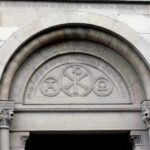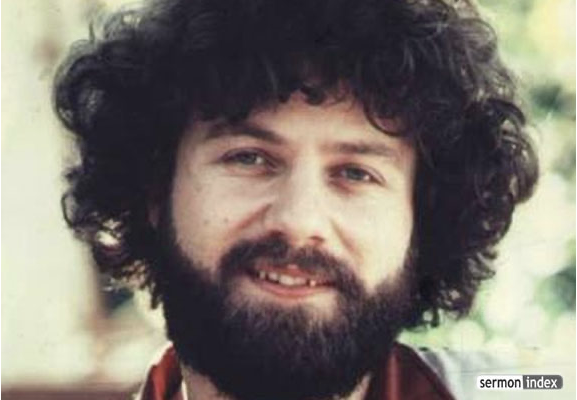One of the ecclesiastical debates of the day—particularly in the Baptist world—is whether or not the title “pastor” should denote an official church office or whether it is more descriptive of gifting. For those who claim the former, the argument is often traced to Ephesians 4:11. People will point to this verse to show that the pastor is an official office and then link this text with others in the New Testament where pastor and elder/oversee are linked (1 Peter 2:25; 1 Peter 5:5) and therefore conclude that the pastoral office is one and the same as the elder/overseer office. Therefore, to be a pastor is to be an elder.
But is the case really so cut and dry? In this post, it is not my goal to agree or disagree with the position that the title “pastor” denotes an office. Instead, my goal is to raise important questions that need to be considered in applying Ephesians 4:11 today. If we are to engage with this text seriously, there are issues we have to address.
Is Ephesians 4:11 about giftings or offices?
This is a core question. If Ephesians 4:11 is primarily talking about giftings then one can say that people, in the New Testament era as now, have apostolic, prophetic, evangelistic, pastoral, and teaching gifts. These gifts are given to build up the church. If understood in this way, for example, the one with apostolic giftings would be gifted as a church planter whereas the evangelist would be gifted in presenting the gospel to unbelievers. With this interpretation, one could have the title “pastor” based on gifting without it necessarily needing to denote an official office in the church.
However, if one interprets Ephesians 4:11 in speaking about offices, then we have further questions.
How many offices are described in Ephesians 4:11?
Everyone agrees with the separation of the first three offices: apostles, prophets, and evangelists. But then how do we handle the last two? Some argue that pastor and teacher denote one office—that is, the pastor/teacher. Others argue that the pastor is one office and the teacher is another. Assuming that there are two offices in mind, then where is the office of the teacher today? If the pastor is to be equated to the elder, is the teacher position as well?
Although John Gill prefers to interpret the phrase “some pastor and teachers” as pertaining to one office, he does raise the possibility that there are two in mind. In this case, Gill writes, “the pastors are the shepherds of the flock, the overseers of it, and the same with the bishops and elders, and the teachers may be the gifted brethren in the church, assistants to the pastors, bare ministers of the word; so the difference lies here, that the one has oversight, and care, and charge of the church, and the other not; the one can administer all ordinances, the other not; the one is fixed and tied to some certain church, the other not.”[1] If John Gill’s description is a fair representative of one strand of thought, then it seems a possible position that the teacher is a separate position from pastor, and in Gill’s description, the teacher has a different role from the pastor and is therefore not an elder. And so, the next question.
Is the teacher an official office of the church?
If the other four are official offices, and teacher is meant to be separate, then surely the teacher must also be an office? But according to Gill’s description, the teacher is not tied to one specific local church. So does this mean there are offices of the church that are representative for a larger body of churches rather than a local church alone? Is the seminary professor, who is in the office of a teacher, the teacher for a fellowship of churches? If so, then one has to consider what the office of the teacher is, and how the teacher relates to a local church and a larger body of churches. Should the teachers of the church be ordained by the church? Employed by the church?
But let us say that pastor/teacher is one office, then there is still another issue.
What offices are still in effect today?
While some traditions would see all offices still in effect today, the Baptist tradition would see the office of apostle as fulfilled during the time of the New Testament (the apostolic era). But what about prophets? Or evangelists? Many claim prophets are fulfilled as well as this speaks of a specific office held in the early church by figures like Agabus (Acts 11:27–28). Some make a similar claim that evangelists were a unique role in the apostolic era as well. However, others, such as Charles Spurgeon, believed that evangelists continue to be a gift lived out in the lives of missionaries and church planters.[2] In this case, does this imply that there needs to be an official office of evangelist in churches today as well? If so, should evangelists also be ordained? By a local church or a fellowship of churches?
Why do we use the titles we use today?
This brings us to a final consideration. Why do we use the titles that we use in Baptist churches today? In the First London Baptist Confession of Faith (1646) the word ‘pastor’ is not used. Instead, the confession speaks of “elders and deacons” (Article 36), then in Articles 37 and 38 it uses the term “ministers.” In the Second London Baptist Confession of Faith (1689), chapter 26 on the church again mentions that the church has two offices: “bishops or elders, and deacons.” Then later the phrase “bishops or pastors of the churches” implies that bishops, elders, and pastors are seen synonymously.
When put together, these early Baptist confessions use the terms minister, bishop, elder, and pastor to denote the same office. Today, in my Ontario context at least, it is common to use the terms pastor and elder; however, they are not synonymous. Hired staff who are elders are called pastors, but lay elders are not. Moreover, sometimes hired staff are called pastors and not elders. One also virtually never hears the titles minister, bishop, or, alternatively, overseer. Why do we use the terms we do? And what do these terms really communicate from an ecclesiological perspective?
Concluding Thoughts
Again, my aim has not been to convince you one way or another. I have simply aimed to raise serious and important questions that have to be addressed in this discussion. Our tendency is to use titles and to structure the church on pragmatic considerations and recent tradition (say, from the last 50 years or so).
But what does Scripture, read on its own terms, point us to? What does the Baptist tradition, from Gill, Spurgeon, and the First and Second London Baptist Confessions, teach us? Only after we give serious consideration to these issues can we then look to structure our ecclesiology from a historical, biblical, and theological framework.
[1] John Gill, Ephesians, Commentary on the New Testament.
[2] Charles Spurgeon, “The Ascension of Christ,” Sermon on Ephesians 4:7–12.























